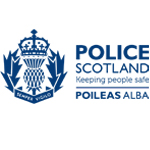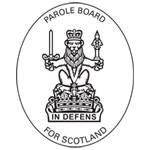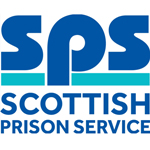Experiencing Hate Crime – Helena’s* story
National Hate Crime Awareness Week aims to bring people together to stand in solidarity with people affected by hate crime, remember people we have lost, and support people who need ongoing support.
Hate crimes of any nature are intolerable, and Victim Support Scotland helps people impacted by this type of crime – whether that be through emotional, practical or financial support.
When Helena’s* partner became disabled as a result of a severe stroke, they began to experience a series of hate crimes perpetrated against them by a neighbour. VSS supported her during the court process, towards the end of her ordeal. This is her story.
*Name has been changed to protect identity
“Several years ago, my partner had a severe stroke, leaving him in a wheelchair, limiting his movement and speech, and leading to medical complexities, including developing dementia. My partner’s expressed wish was to stay at home, so a care package was set up with me as his primary carer. We had a disabled access sign, wheelchair ramp and a painted line on the driveway for getting access to the disability car.
“Any life changing illness that results in a disability is devasting and made even worse when afterwards being diagnosed with late stages of dementia due to Alzheimer’s disease. To watch your beloved fade away, unable to feed or communicate, having no independence is heart-breaking.
“This situation was made worse when our perpetrator attempted to deprive my partner of the much-needed care he needed through a vile campaign of pure hatred towards a vulnerable disabled person who was receiving end of life care support in his own home. This not only was cruel and heartless but beyond comprehension.
“He didn’t like the fact that provisions had been put in place to make my partner’s life more comfortable.
“Our perpetrator, an upstairs neighbour, started banging on our door claiming that he was being bothered by noise from the TV, but we showed him that my partner didn’t have access to a TV.
“We had a security camera inside our house and were mortified to see this neighbour entering uninvited. He filmed our carers and shouted at them. He would be waiting for them to arrive and when they put out washing, he cut down the line. I told him to stop harassing my carers and partner otherwise I would report him to the police. This resulted in him threatening and following both the carers and myself when we were leaving the house.
“The perpetrator started banging on our doors and our windows and dropping heavy objects onto his floor. He sent children round to scream outside and let air out of our car tyres. He smashed glass over our path and spread excrement over our front door. He would sharpen homemade knives outside our window and box my car in – once for 10 days. He started following me to my workplace. Then he started a fire in the communal garden, using hazardous waste. The carers and I were worried that we wouldn’t be able to get my partner out the house if there was another fire.
“This perpetrator knew my partner was terminally ill and he seemed to get a kick out of this. My partner was confused and frightened due to the late stages of dementia, but one of the few words my partner could say when the noise started above was ‘help’, which was soul destroying. My own health was starting to suffer too, I was physically drained due to the lack of sleep and collapsed a couple of times.”
Reporting it to the Police
“I eventually plucked up the courage to report it to the Police it as a disability hate crime, especially when he ran over and damaged the wheelchair ramp, again boxing in the disability car.
“The police who attended the initial report recorded it on the police care card as a ‘neighbour dispute’. They advised that a package would be created, and they would take statements from witnesses and carers during that period. I waited seven months and heard nothing.
“Months later, a sergeant called me and apologised and said the officers had gone about this totally wrong. I explained about the continuous harassment, the damage, the threats and the diary and CCTV evidence we had which was witnessed by carers, family, friends and neighbours. I explained I was scared to report it as it was ongoing.
“The sergeant was fantastic and assigned us a police officer. The officer then spoke to witnesses, neighbours and carers who were also victims of threatening behaviour or damage to their property. The officer then said the guy is going to get evicted – but he wasn’t. Months passed, and the harassment carried on.”
Continued impact of hate crime
“Just before Christmas, my partner had a medical emergency. The perpetrator was making extreme noise while this was happening. The wardrobes were vibrating with the impact of the banging. An ambulance was called and meanwhile the guy was hammering on the window, laughing, and jumping up and down. My partner – my soulmate – died later that day at the hospital.
“I went to stay with family after my partner died but had to go back to house to collect things and organise the funeral. The perpetrator was still harassing me. I was receiving silent phone calls and had people coming to the door, asking about my house being up for let. On the day I needed to get out the house to go to the undertaker, my car was blocked in. I had to beg my family not to retaliate. It was similar on the day of my partner’s funeral, where the perpetrator was jeering at our loss. I was unable to grieve.
“A few months later the police officer phoned and asked if I was enjoying peace and quiet with the guy having been evicted and I said that he’s still there. The police officer said he would look into the eviction. Within that week the perpetrator upped his game. He was smashing up the place, swearing at me, threatening to kill me, and challenging other neighbours to fights. I ran to my neighbour’s house, and we had to call the police.
“He left the house, but the police managed to track him down and charged him with various offences and gave bail conditions. Within days he was breaching his bail by driving up and down the street. He turned up at my work and started following me. One day he drove towards me in a car as I was leaving my work.”
Referral to support services
“Throughout the two years, no one asked if I wanted to be referred to victim support. However, after giving a breach of bail conditions statement, I was asked if I wanted to be referred to Victim Support Scotland. VSS phoned me soon after and I had my first support meeting. By the end of that hour I was basically whispering, my voice had gone due to the stress. The volunteer explained the service was free, that they can provide emotional support and connect to counselling services. It was the first time I told my story in full. And I hadn’t seen myself as a victim – my partner was a victim, my neighbours were victims, my pets were victims…
“On the day of the trial, I got a call to say that the accused had made a plea bargain – he had pled guilty to stalking and harassment and other charges, but not breach of bail. This had meant a Non-Harassment Order could be applied for. The Crown Office and Procurator Fiscal Service said it was a ‘good deal’, but at that time, I felt hard done by, it was more like a ‘get out of jail’ card.”
Partnership between agencies
“There needs to be a better understanding of disability hate crime, and hate crime in general, addressing the bigger picture, listening and a stronger partnership between the justice system and Victim Support Scotland, and knowledge about VSS by police probationers. This was not just a nightmare neighbour one-on-one. My partner was a vulnerable disabled person who didn’t have a voice. If neighbours intervened or I asked them for help they became a victim too. Others have been affected by the same perpetrator but had also had no justice. The police shouldn’t have recorded it as a neighbour dispute initially, as this was a hate crime.
“I feel that there should be a ‘flag-up trigger’ system for anti-social behaviour. After the trigger has red flagged the system, maybe through a points system, then it should be reviewed by a duty inspector. Police and agencies should be asking the victim who else this is affecting – other neighbours, friends and families, carers, NHS workers, even the postman. I also believe that the recently implemented Hate Crime and Public Order (Scotland) Act will be helpful due to increased training and awareness among police officers about the characteristics of hate crime.
“My journey has been a long one. My life has been destroyed, and I’ve been rebuilding it as part of the healing process. When something happens, I now feel I can tell somebody. I can’t quite put it behind me because there’s the likelihood that he will reoffend. The staff member at Victim Support Scotland has been my rock and my anchor during this difficult situation, giving me back my life. My VSS support volunteer has been a blessing and someone you can speak to without being judged.
“Hate crime has had a profound impact on many of us with traumatising effects and scars that will take years to heal. Through raising awareness of hate crime, hopefully we can put an end to these despicable and cowardly crimes.”
If you have been a victim of hate crime—or any crime—please don’t hesitate to reach out. You don’t have to have reported the crime to receive support. Our dedicated team of volunteers is here to offer practical advice, personalised support, and guidance through the criminal justice process.
You can call us on our support line below, reach out through our web chat service, or fill out a self-referral form.
0800 160 1985











